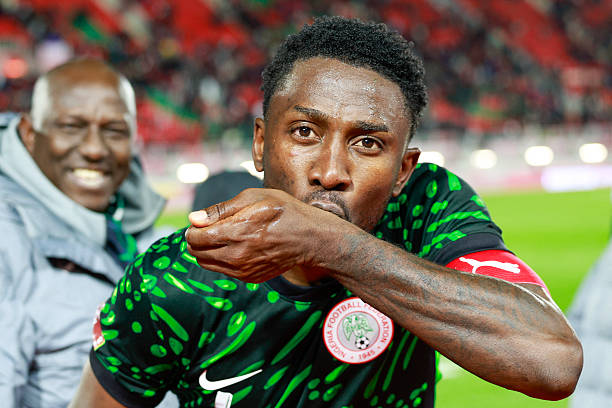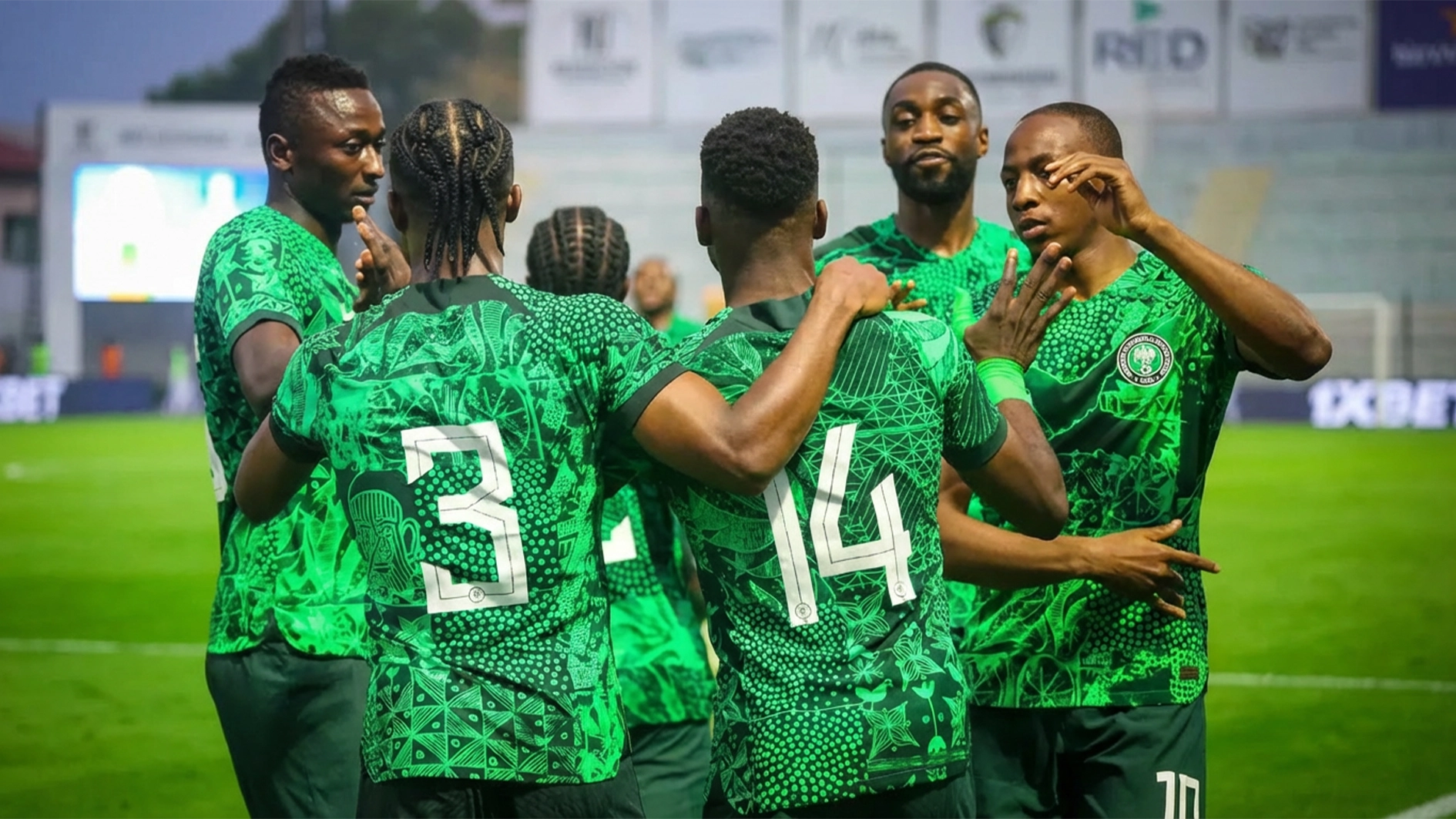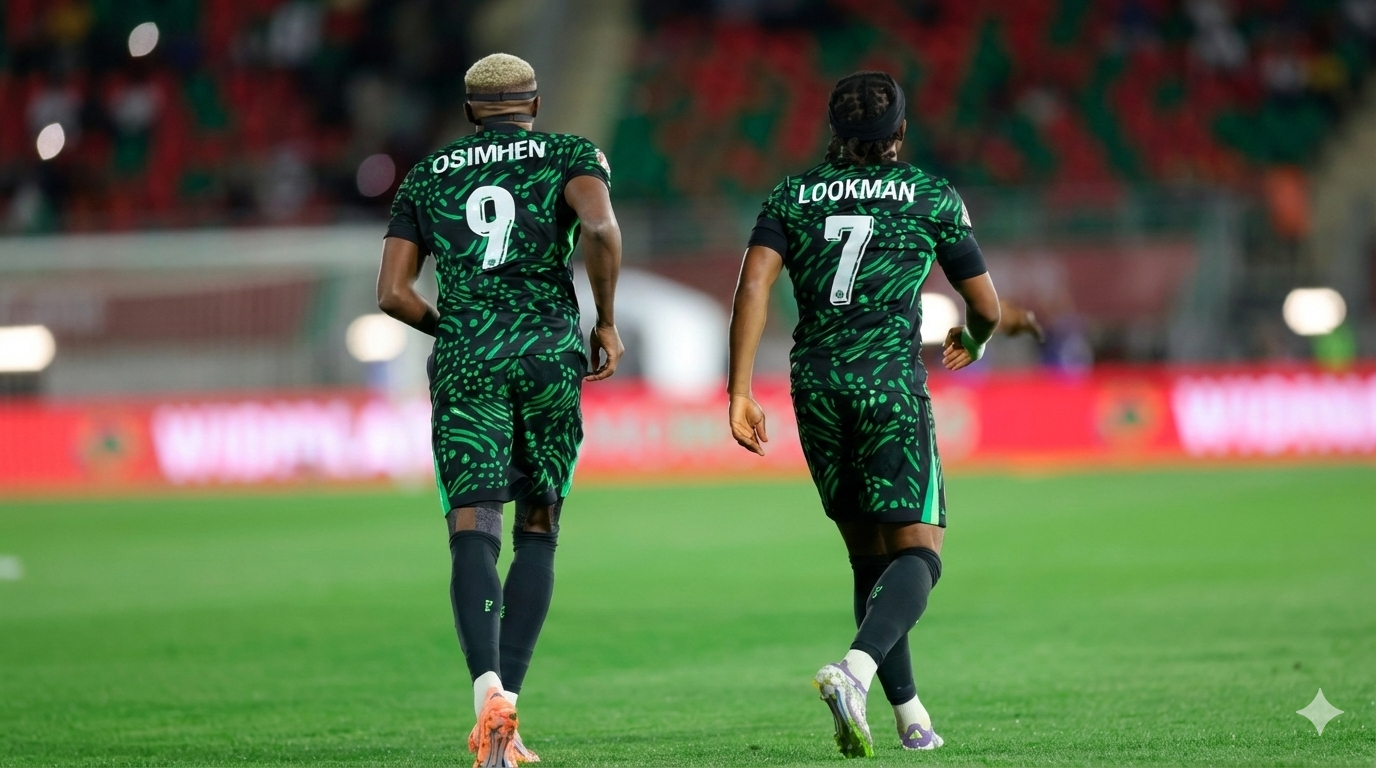The Velodrome in Abuja shook this past weekend as African Knockout (AKO) returned to the capital for the second time. From the revving of Abuja’s biking community outside the arena to the chants that rolled through the crowd inside, the city stamped its own culture on the night. The show aired live on YouTube and SuperSport Action, giving fans across the continent a front-row seat to the chaos and drama of African MMA.
Adding to the electricity was Kamaru Usman, Nigeria’s UFC legend and AKO’s flag bearer. Usman was at his most engaging, mixing with fans and fighters, and stepping into the cage to raise the hand of the night’s biggest winner — Do Santos. It was a symbolic gesture, as if the torch of African MMA pride was being passed from the “Nigerian Nightmare” to the continent’s next generation of stars.
Main Event: A Rivalry Ends in Five Seconds
The lightweight title fight between Nigeria’s Jibrin Inuwa Baba and Benin’s Jean Do Santos carried the weight of history. Their first meeting in 2023 ended in controversy, with Do Santos edging a split decision many Nigerians disputed. This rematch had been building ever since.
But instead of the war Abuja expected, it ended in eight (8) seconds. At the opening bell, Do Santos launched a flying knee that landed flush, flattening Jibril and stunning the Velodrome. It was the fastest knockout in AKO history, a brutal upset that silenced chants and left fans in shock. For Do Santos, it was vindication; for Jibril, heartbreak in front of a home crowd.
Co-Main Event: Diatta Delivers Again
The interim featherweight title fight between Senegal’s Gasmire Diatta and Angola’s Andre Mukisi had the most heat outside the main event. The two had traded barbs for weeks, fueling the kind of grudge match fans love.
Inside the cage, the tension broke early.
Mukisi appeared hampered by a foot injury — eerily similar to the one that derailed him at AKO 9 — and Diatta pounced. With crisp striking, he scored a KO that left no doubt. For Senegal, it was another statement win from one of its most explosive exports.
Nigeria’s Night of Grit
While the main event didn’t go their way, Nigerian fighters still gave Abuja plenty to cheer about.
- In the women’s bantamweight interim title fight, Jane Osigwe went five grueling rounds against Morocco’s Mandar Sanaa. Despite it being her first championship-length bout, she looked sharp, composed, and relentless, grinding out a unanimous decision. When the belt was strapped around her waist, she celebrated the way only Jane can — with her signature twerk, sending the Velodrome into a frenzy.
- In the middleweight division, Abuja’s Yahaya Yahuza overcame adversity in spectacular fashion. Fighting in his home city, he tore his groin in the first round against Benin’s Cherif Drame. Instead of folding, Yahuza dug into his wrestling base, slamming Drame repeatedly and controlling the fight from start to finish. He earned a unanimous decision to extend his record to 7–0, proving why Nigeria’s wrestling pedigree is a cornerstone of its MMA rise.
- In the women’s bantamweight division, Joy Obanla scored a knockout over Nelson Ufot in an all-Nigerian clash. The fight had drama of its own — Ufot knocked Joy down with a head kick at one point, but Joy rallied back and ended it with a highlight finish, announcing herself as a real contender.
International Fireworks and Controversies
Beyond Nigeria, the rest of Africa made its presence felt.
Algeria stole the spotlight with two slick submission victories. In the middleweight division, Fouad Madani locked in a rear-naked choke on Côte d’Ivoire’s Sodiq Amao, while in the featherweight division, Farouk Boudissa did the same against Nigeria’s Chukwuemerie Okoli. Both fighters left Abuja as breakout stars.
In the bantamweight division, Zimbabwe’s Lewis Mataya stopped Côte d’Ivoire’s Prince Mensan via TKO. But the fight will be remembered just as much for the bizarre: Mensan was deducted points for biting — one of the oddest incidents in AKO history.
In the middleweight division, Cameroon’s Cabrel Fongno beat Côte d’Ivoire’s Kone Memom via Technical Decision, The victory was controversial: Fongno had missed weight by more than 3kg and landed multiple groin strikes during the fight. The referee let it continue, but fans were left debating whether the result should stand.
Defining Moments
From a sporting standpoint, Abuja’s AKO card had it all — drama, controversy, and brilliance. The defining moment will forever be Do Santos’ flying knee, a finish destined to be replayed in AKO highlight reels for years.
But the night also showcased Jane Osigwe’s grit, Yahuza’s heart, Joy Obanla’s resilience, and the rise of Algeria’s new submission threats.
Production ran smoothly, with little to no hiccups, marking a new standard for AKO events. And while the Velodrome wasn’t at full capacity, those in attendance were treated to a spectacle that cemented Abuja as a key stop for African MMA.
Above all, Kamaru Usman’s presence tied the night together. Watching him raise Do Santos’ hand after the main event KO was more than ceremonial — it was symbolic. African MMA is no longer a dream; it’s here, alive, and surging forward.
Closing Note
From the roar of motorbikes outside to flying knees, groin strikes, and signature twerks inside, AKO’s return to Abuja proved once again that this is the beating heart of African combat sports. The Velodrome didn’t just host fights — it bore witness to history in motion.






